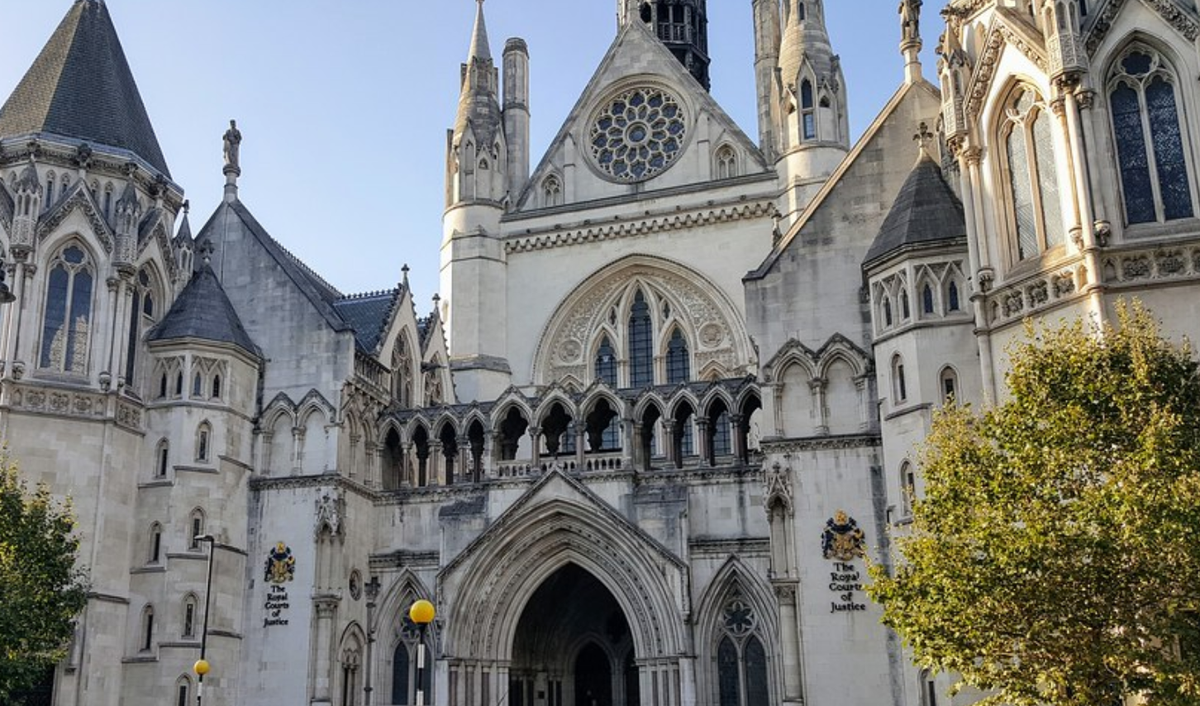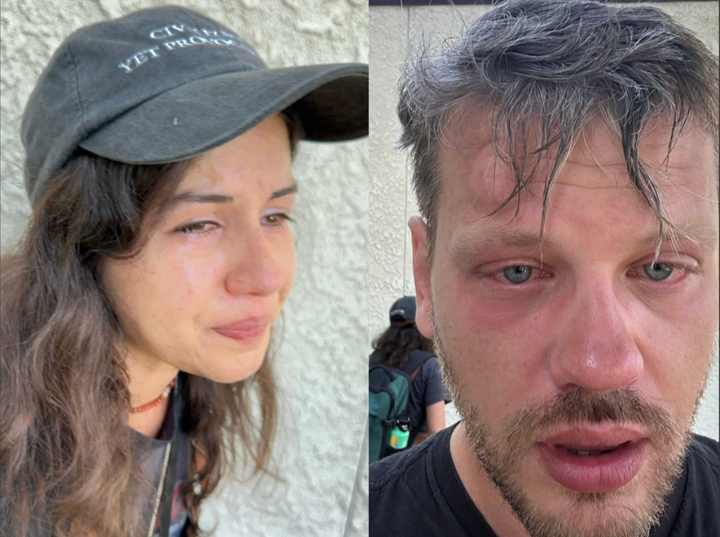Assange Extradition Delayed: UK High Court Asks US To Offer 'Assurances' Or Face Limited Appeal
While granting WikiLeaks founder Julian Assange a limited appeal against extradition, the US government was encouraged by the UK High Court to submit "assurances" that could prevent further proceedings.

The British High Court of Justice partially granted WikiLeaks founder Julian Assange’s request to appeal and delayed his extradition to the United States. However, the U.S. government was given an opportunity to provide “assurances” that may result in his extradition in the next months.
Assange was granted permission to appeal [PDF] on the grounds that extradition may violate his right to freedom of expression. The court accepted that he may face prejudice due to the fact that he is a non-U.S. citizen, and that the prosecution may expose him to the death penalty, which is barred under extradition law.
But the court refused to allow Assange to appeal on the grounds that the U.S. is prosecuting him for his “political opinions,” that extradition would violate his right to a fair trial, and that extradition would violate his right to life or expose him to cruel and inhuman treatment.
The court rejected Assange’s request to include “fresh evidence” related to alleged evidence that CIA Director Mike Pompeo and other CIA officials sketched out plans to kidnap or kill Assange while he was living under diplomatic asylum in Ecuador’s London embassy.
U.S. officials were encouraged by the court to offer “assurances” that Assange would be protected by the First Amendment of the U.S. Constitution, that he would not be “prejudiced at trial” as a result of his nationality, and that the death penalty will not be imposed.
Stella Assange condemned the High Court for inviting a “political intervention from the United States to send a letter saying it’s all okay. I found this astounding.”
“The Biden administration should not issue assurances. They should drop this shameful case that should never have been brought. Julian should never have been imprisoned for a single day,” she further declared.
If the U.S. government submits such assurances, which they are likely to do, prosecutors in the U.S. Justice Department may avert a limited appeal. They have until April 16 to offer assurances.
A hearing will be held on May 20 if the U.S. government submits assurances to the court.
Assange has been detained at His Majesty’s Prison Belmarsh for nearly five years. Extradition was approved by the U.K. government in June 2022, and the WikiLeaks founder has pursued an appeal for more than a year and a half. In that time, his mental and physical health has greatly deteriorated.
Despite global condemnation by civil liberties, human rights, journalist unions, press freedom organizations, and various political leaders, especially in Australia and Europe, U.S. prosecutors refuse to drop charges against Assange that were first pursued by officials in President Donald Trump’s administration.
Assange is charged with 17 counts of violating the Espionage Act and one count of conspiracy to commit a computer intrusion. The unprecedented charges stem from the fact that he engaged in journalism and published classified documents that were provided by U.S. Army whistleblower Chelsea Manning in 2010 and 2011.
In 2021, the High Court ruled in favor of the U.S. government after they appealed a district judge’s decision that found extradition would be oppressive to Assange’s mental health given the widespread inhuman treatment that has been documented in U.S. jails and prisons. (That ruling came on International Human Rights Day.)
The U.S. State Department salvaged the extradition case by intervening. They offered "diplomatic assurances" on how Assange would be treated in U.S. custody and reminded the U.K. government that the U.S. and the U.K. have a “long history of cooperation” on “extradition matters.” That was enough to alleviate the High Court's concerns, even though there were loopholes in their promises.
Risk Of Death Penalty Given Calls From U.S. Politicians
Extradition from the U.K. is barred if there is a risk that the requested person will be sentenced to death.
During court proceedings on February 21, Ben Watson KC, who was instructed to represent the U.K. Home Secretary, accepted that Assange could later be charged with “aiding or abetting treason” or a more severe charge of “espionage” that could lead to the death penalty.
“There are no arrangements in place to prevent the imposition of the death penalty,” Watson conceded.
Watson’s responses led the High Court to believe that capital charges, given calls by “leading politicians and other public figures” in the U.S., could result in a death sentence for Assange if he was convicted.
Denying Assange First Amendment Rights: 'A Real Prospect Of Success'
Furthermore, the High Court accepted that Assange wished to argue at trial that if he was granted First Amendment rights, then the prosecution would be stopped.
“The First Amendment is therefore of central importance to his defense to the extradition charge,” the High Court added. “Further, if he is convicted, he may wish to invoke the First Amendment on the question of sentence. If he is not permitted to rely on the First Amendment because of his status as a foreign national, he will thereby be prejudiced (potentially very greatly prejudiced) by reason of his nationality.”
It was Assistant U.S. Attorney Gordon Kromberg, a lead prosecutor on the case, who suggested the U.S. government might argue during trial that Assange was not protected by the First Amendment.
“[Kromberg] made a formal sworn declaration on behalf of the respondent and in support of the extradition request,” the High Court asserted. “He put himself forward as able to provide authoritative assistance as to the application of the First Amendment. It can fairly be assumed that he would not have said that the prosecution ‘could argue that foreign nationals are not entitled to protections under the First Amendment’ unless that was a tenable argument that the prosecution was entitled to deploy with a real prospect of success.”
“If such an argument were to succeed it would (at least arguably) cause the applicant prejudice on the grounds of his non-US citizenship (and hence, on the grounds of his nationality),” the court added.
Only narrowly did the High Court accept an appeal on the ground that his right to freedom of expression may be violated if he was not “permitted to rely on the First Amendment” at trial.
Not Being Prosecuted For Exposing U.S. Crimes
The court sided with Kromberg, who claimed the “publication charges” against Assange are “explicitly limited to documents that contain the names of human intelligence sources.”
“Indeed, a deliberate decision was made not to charge the applicant in respect of the publication of any other material by him,” the High Court stated. “The applicant’s publication of material which he alleges exposed the respondent’s involvement in serious criminality may well raise strong public interest factors justifying a high level of protection. But the respondent does not seek to prosecute the applicant in respect of those matters.”
Effectively, the High Court ignored the “general allegations” in the indictment [PDF] that do criminalize Assange for publishing all the material that he obtained. He is charged for “encouraging sources” to “circumvent legal safeguards on information,” “provide that protected information to WikiLeaks for public dissemination,” and “continue the pattern of illegally procuring and providing protected information to WikiLeaks for distribution to the public.”
All of the charges stem from standard newsgathering activities that Assange engaged in as WikiLeaks editor-in-chief. Those activities were undertaken for the purpose of publishing documents on U.S. wars in Afghanistan and Iraq and diplomatic cables that exposed torture, human rights abuses, and various other examples of misconduct on the part of U.S. officials.
The High Court's decision made it clear that if the State Department offers another set of assurances then the U.S. government will likely be permitted to move forward with extraditing Assange. That would lead Assange's legal team to file a petition in the European Court of Human Rights in a last-ditch effort to save him from being flown to a U.S. detention center for trial.
Outside of the High Court, Stella Assange reminded the press and Assange supporters that her husband is a “political prisoner. He is a journalist, and he is being persecuted because he exposed the true cost of war in human lives.”
“This case is a retribution. It is a signal to all of you that if you expose the interests that are driving war they will come after you. They will put you in prison, and they will try to kill you."




Comments ()